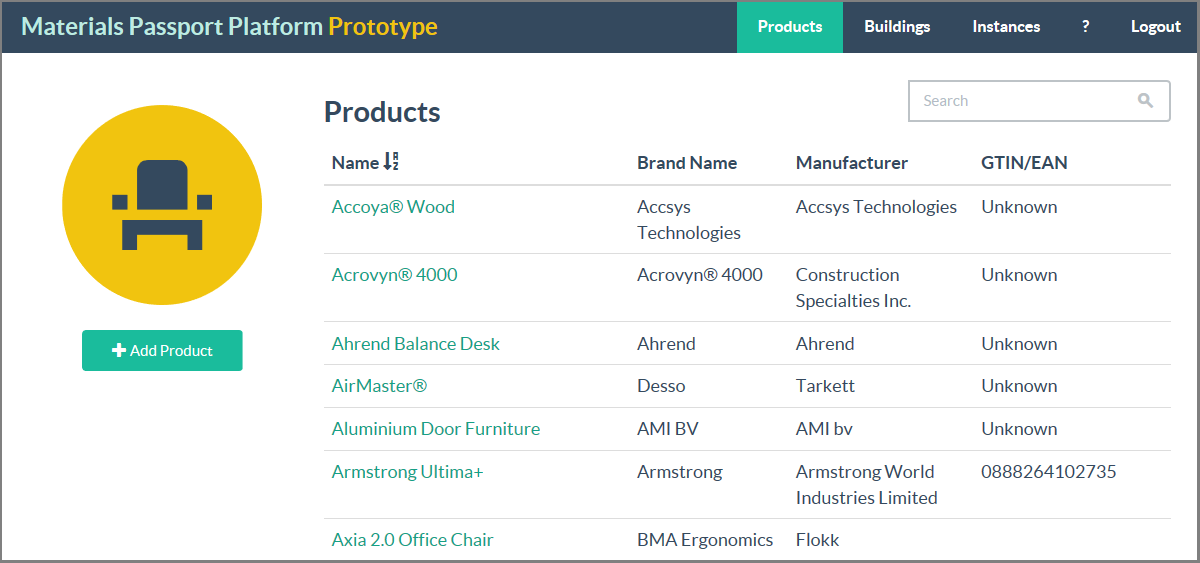
Special Interest Group Materials Passports
The electronic Materials Passports developed in BAMB aimed to be a one stop shop for material information. Materials Passports developed in BAMB are sets of data describing defined characteristics of materials in products that give them value for recovery and reuse.
More information
For any later information exchange please contact the individual BAMB partners or Caroline Henrotay – Project Manager and Technical Coordinator, Bruxelles Environnement – Leefmilieu Brussel, e-mail: chenrotay@leefmilieu.brussels
Interview with Lars Luscuere, EPEA Netherlands
Brussels, January 24, 2017
What is a Materials Passport?
Materials Passports are electronic sets of data that describe those characteristics of building materials, products and product systems that enable value recovery from materials. Materials Passports focus on action and go beyond existing documentation on products to describe practically how residual value of materials can be recovered instead of on measurement of impact, or listing composition.
How will it look like?
What a Materials Passport looks like depends on the user and on the scenario. Different subsets of data are relevant and available in different circumstances. For example, when you are interested in a lighting systems’ potential for flexible reuse in a refurbished building, you are not so much interested in all the details of its composition as long as you know it is healthy for the people in the building. Instead what you want to know is how to get it de-installed and re-installed again and whether that is possible.
How does the Materials Passports developed in BAMB relate to other already existing initiatives, like the CE marking etc.?
Materials Passports are not certificates for products. They do not indicate that products have passed a certain threshold on circularity and they do not give an accumulated score on the level of circularity of a product. Rather, they make the information available that would allow you to optimally use a products’ value recovery potential. If the product is optimised for this, that’s reflected by the information that is available.
The Materials Passports differentiate by focusing on action and on value, and by taking into account the context of materials.
How do you want/need to integrate our stakeholders in the development?
Stakeholders are continuously involved in the development of Materials Passports in BAMB. Our stakeholders give invaluable input to our work. The next steps after getting the software operational and the framework in place are exiting as we’ll work together with parties from the stakeholder network and connected to the BAMB pilot projects to make the first passports.

